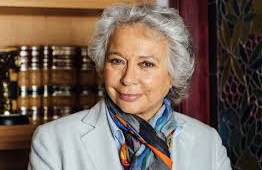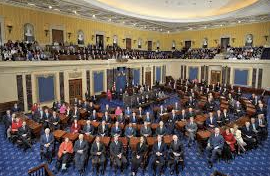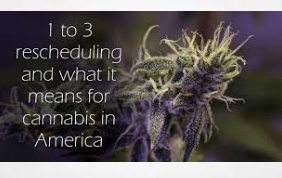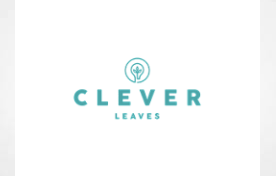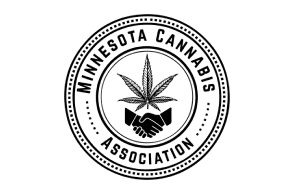Here is their press release and their plans for the future
|
SAINT PAUL, MN— On May 3, the four board members of the Minnesota Hemp Association unanimously voted to change the name of their organization. Since that time, the organization has been conducting business under its new name, Minnesota Cannabis Association. “The Minnesota Hemp Association chose to rebrand to the Minnesota Cannabis Association to support legislation of all cannabinoids,” said board member Steven Brown. Brown is the CEO of the largest Minority/ Veteran Owned hemp/cannabis retailer in the Midwest. He owns multiple brands and multiple Nothing But Hemp physical locations. He also licenses his retail brand in Minnesota and Florida. The difference between hemp and marijuana is a legal one, not a botanical one. Cannabis sativa L. plants that contain 0.3% delta-9 THC or less are legally considered hemp. Cannabis sativa L. plants that contain more than 0.3% delta-9 THC are legally considered marijuana. “Hemp is cannabis. Marijuana is cannabis. It’s all cannabis,” said board member Charles Levine. In addition to his support of the Minnesota Cannabis Association, Levine is the owner and founder of Hemp Acres. Hemp Acres has built 3 facilities specialized for each hemp commodity, totaling 40,000 sq ft of food grade hemp processing facilities, designed to handle 50,000 acres of contracted hemp throughout the midwest for grain, fiber, and botanical extracts. Currently Hemp Acres has 3000 acres under contract for 2021 production and anticipates contracting 10,000 acres in 2022. “With the adult use marijuana bill that just passed the Minnesota House, we see this as a good time to rebrand,” said board member Jason Tarasek. Tarasek works as a cannabis lawyer at Minnesota Cannabis Law, which he opened about three years ago to serve the emerging hemp industry. Board member Parker Smith pointed out how the word ‘hemp’ incorporates nearly all parts of the cannabis plant, with delta-9 THC as the exception. In contrast, the word ‘cannabis’ is inclusive, and it allows the organization to advocate for all parts of the plant. Smith owns and operates a Minnesota-based CBD extraction facility. He is also teaming up with experts in the toxicology field to start up a cannabis testing facility in Massachusetts called Ilios Solutions. “To us, having an association that excluded just one portion of the plant didn’t necessarily feel right,” Smith said. “It just means that we’re just broadening our scope.” Minnesota Hemp Association updates goals along with its nameThe Minnesota Hemp Association, now rebranded as the Minnesota Cannabis Association is a 501(c)(4) organization providing advocacy, education, business development opportunities to advance the growth and vitality of Minnesota’s cannabis industry from seed to sale. As the largest cannabis nonprofit in the state, it provides a network of farmers, processors, manufacturers, retailers, distributors and service providers with vital industry news, valuable business-to-business opportunities and influence to shape the regulatory and public policy decisions. Under its former name, the Minnesota Hemp Association assisted in passing CBD legislation in Minnesota, hosted the 2019 Hemp Conference Expo with the Minnesota Department of Agriculture and helped educate hundreds of hemp businesses in Minnesota. Brown, who was one of the founding members of the Minnesota Hemp Association, explained how the organization’s original name made sense at the time it was chosen because the organization initially focused on the grain, CBD and fiber sides of the cannabis industry. “Most of the uses of this plant that make it so diverse are within the stock and the grain.” Levine added. However, members soon learned that the industrial hemp side of the cannabis industry is not yet mature enough in Minnesota to prosper the way industry leaders expected it would. Brown explained that the state lacks the machinery and infrastructure needed to support significant growth in this area. “We still have an interest of being on the industrial side and supporting companies that would like to utilize their talents to kind of steam roll ahead and start that portion of industry, but it’s going to take years to actually reach maturity or even have the right equipment to do what we need to do with hemp,” Brown said. As the former Minnesota Hemp Association settles in under its new, more inclusive name, it is also seizing the opportunity to implement a more action oriented engagement approach. In the past, the organization’s approach primarily involved educating members on relevant hemp issues during events that it hosted. Now, the organization intends to focus more energy on getting people involved with cannabis issues. Part of this new approach includes providing donors a more personalized donation experience. This allows donors to choose which specific causes they want to support. The Minnesota Cannabis Association ensures 95% of donations go directly to the cause the donor selected. Only 5% goes toward administration expenses, which are needed for the organization to further that cause. In the coming months, the Minnesota Cannabis Association intends to channel much of its efforts into two important issues the industry currently faces. These issues include the legislation surrounding delta-8 THC products and cannabis food and beverage products. Increased regulations could benefit the Hemp Industry Delta-8 THC products are very popular right now with consumers, and according to Brown, the consumer interest in these products is helping to support a healthy hemp industry in Minnesota. “CBD as a whole has been a lot slower than what the hemp industry expected, and especially with the saturation rate of the amount of new retailers and new brands that are out there,” Brown said. “Just selling CBD alone — it’s not very easy. We still do very well with it, but as a whole, delta-8 THC has increased sales for us, but more than increasing sales for us it really benefited our customers in so many ways.” Brown explained how a recent poll of his customers revealed that only about 20 percent of them are using delta-8 products recreationally. Reasons that are more popular included improved sleep, reduced anxiety and decreased pain. If Minnesota were to ban delta-8 products the way some other states have, there would be a “massive drop in sales” at Minnesota hemp businesses, according to Brown. He also believes a statewide delta-8 ban would turn many consumers to the black market or to online retailers based out of state. He feels a better approach would be to craft thoughtful regulations. “I believe that we, as a hemp community, should develop a legal framework,” Brown said. Brown believes this legal framework should include:
Establishing appropriate testing requirements is especially important for consumer safety Brown said. However, he said that setting taxes may be the most important regulation for business impact. “Delta-8 THC makes up almost 50% of sales for manufactures and CBD retailers right now, so it is what is keeping a lot of these retailers afloat, especially if they are a brand new business,” Brown said. “Why don’t we just regulate it, and we benefit as a state to get some tax revenue off of it and to put safe regulations behind it.” Tarasek and Levine both agree that one of the biggest challenges in the cannabis industry right now is a lack of clear, common-sense regulations. “A big part of the problem is that the regulations are either confusing or non-existent, and the industry is, in many respects, left to sort of self-regulate in a lot of ways,” Tarasek said. “We are a collection of business owners who are trying to do the right thing in a space where there are a lot of bad actors and when we speak with elected officials they’re often surprised that we urge them to regulate us because we don’t want those bad actors in this industry. We want to play by the rules.” Cannabis-infused food and beverages could reshape the industry Tarasek explained that food and beverages made with cannabis represents another area where there could be more guidance. “I know that gummies, beverages and food infused by CBD can be found just about everywhere, but if you read the regulations that the FDA puts out, if you read what the Minnesota Department of Agriculture is saying, it doesn’t seem to be legal according to them ,” Tarasek said. “That doesn’t make a lot of sense to me because people are ingesting CBD through tinctures and in other ways, and I don’t see why that would be okay when adding it to a food or beverage would not be okay.” “We’d love a seat at the table when the regulators and the legislators begin analyzing that. We would like to work hand in hand with the government in crafting common sense regulations,” he added. If CBD were to be allowed in food, it would likely have a big impact on the hemp market. Smith expects it would increase the demand for CBD extracts. “I don’t know a single CBD company that doesn’t want to be able to use CBD in food. Granted, I don’t know all of them, but everyone that I’ve met, which has been a lot, would love to use CBD in food,” Smith said. He explained how this change would allow his manufacturing business to process, create and sell food and beverage products. In addition to candy products, his business has developed CBD sugar, CBD flour and other CBD ingredients that could be used in a variety of products. “We can’t sell it, but we have it here ready to use for when it does become legal,” Smith said. “That’s just our research and development sector of our business — just to see how the product can be utilized.” The regulations surrounding delta-8 products and cannabis food and beverage products are two of the most important industry concerns today. However, the needs of the industry are always changing, and the Minnesota Cannabis Association intends to keep up with those changes. “Everything has its peaks and valleys,” Smith said. “I think we’re going to just advocate for issues as they appear necessary and start affecting our members.” |





